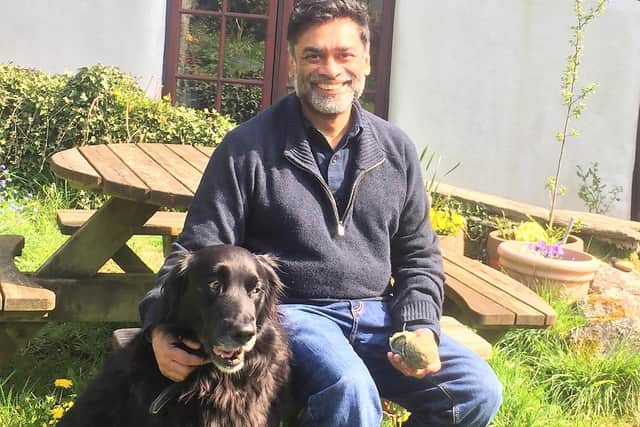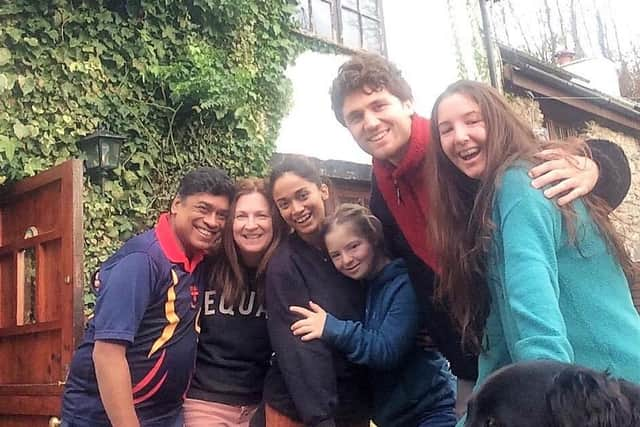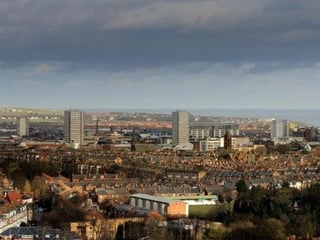Coronavirus survivor describes what it's like to be in the hospital red zone
and live on Freeview channel 276
Professor Poorna Gunasekera, who is known as PG, spent 11 days in hospital where he was tested positive for Covid-19 after being admitted on March 30.
The 57-year-old says a team of amazing NHS staff, which included some of his former students, saved his life after he was initially in denial about being unwell.
Advertisement
Hide AdAdvertisement
Hide AdHaving worked as a senior lecturer at the University of Sunderland between 2008 and 2012, Professor Gunasekera says the city holds a special place in his heart and is thankful for all those who helped and supported him during his time in the North East.


Now he is sharing his story and showing his support for the ‘wonderful NHS’.
What were Professor Gunasekera symptom’s like before he was admitted to hospital?
Admitting that he hadn’t realised the extent of his deterioration, the professor said his daughter Saki and her partner George first started showing symptoms in mid-March.
Advertisement
Hide AdAdvertisement
Hide AdProfessor PG, who previously lived in Sunniside, Sunderland, struggled with aches and pains on March 20 but said the following two days he felt well.


But then his condition began to worsen and the father suffered from diarrhoea – losing 6.5kg (just over a stone) in seven days.
“My breathing was slower but I thought this was because I was so weak,” said the professor.
It was only after days of battling the illness at home when his 26-year-old daughter forced him to have his temperature taken, giving a reading of 39C, did he begin to worry.
When was he taken into hospital and what was it like?
Advertisement
Hide AdAdvertisement
Hide AdPG, who now lives in Devon, was taken by ambulance to Derriford Hospital in Plymouth on March 30 when his symptoms worsened.
Fearing he would be ‘clogging the system’, PG recalls telling NHS staff to send him home if they thought his lungs were capable.
“I think if they hadn’t forced admission, I don’t think I would have survived,” said PG, who now works as a an Associate Professor of Peninsula Medical School at Plymouth University.
“At my worst, I was on eight litres of oxygen a minute – which is half of what they’re able to provide in intensive care.
Advertisement
Hide AdAdvertisement
Hide Ad“My first test came back negative for Covid-19 but when the second came back positive I was taken to the Red Zone.”
During his 11-day hospital stay, PG described a time of almost ‘absolute bliss’, having no worries and feeling as though he was recovering.
He found out later at that point he had actually been at his worst and at times his body producing inflammatory markers that were ‘not compatible with life’.
But from then he began to shows signs of improvement and spent his last three days in the amber zone where he was weaned off oxygen until he was able to keep his oxygen saturation levels up on his own.
Advertisement
Hide AdAdvertisement
Hide AdHe has also thanked the amazing NHS staff who treated him, including some of his former students, and says they have gained the ability to ‘smile and show hope through their eyes’ – the only thing patients can see through the PPE.
What has his recovery been like at home?
He has described his recovery as ‘taking two steps forward and one step back’ and although he is improving every day he admits it is a long process.
“Some days are really wonderful and some days I get thrown to the ground,” said Professor Gunasekera.
Two weeks after he was discharged from hospital, the professor has described suffering from sickness and vomiting but he continues to rest and regain his strength.

